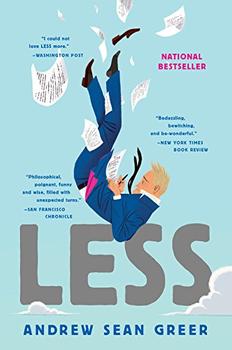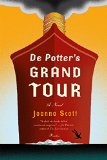Summary | Excerpt | Reading Guide | Reviews | Beyond the book | Read-Alikes | Genres & Themes | Author Bio

Nellie Bly and Elizabeth Bisland's History-Making Race Around the World
by Matthew Goodman1889: Two women, successful journalists and writers, set off in a desperate rate in opposite directions, each determined to outdo Jules Verne's fictional hero Phileas Fogg and circle the globe in less than eighty days.
On November 14, 1889, Nellie Bly, the crusading young female reporter for Joseph Pulitzer's World newspaper, left New York City by steamship on a quest to break the record for the fastest trip around the world. Also departing from New York that day—and heading in the opposite direction by train - was a young journalist from The Cosmopolitan magazine, Elizabeth Bisland. Each woman was determined to outdo Jules Verne's fictional hero Phileas Fogg and circle the globe in less than eighty days. The dramatic race that ensued would span twenty-eight thousand miles, captivate the nation, and change both competitors' lives forever.
The two women were a study in contrasts. Nellie Bly was a scrappy, hard-driving, ambitious reporter from Pennsylvania coal country who sought out the most sensational news stories, often going undercover to expose social injustice. Genteel and elegant, Elizabeth Bisland had been born into an aristocratic Southern family, preferred novels and poetry to newspapers, and was widely referred to as the most beautiful woman in metropolitan journalism. Both women, though, were talented writers who had carved out successful careers in the hypercompetitive, male-dominated world of big-city newspapers. Eighty Days brings these trailblazing women to life as they race against time and each other, unaided and alone, ever aware that the slightest delay could mean the difference between victory and defeat.
A vivid real-life re-creation of the race and its aftermath, from its frenzied start to the nail-biting dash at its finish, Eighty Days is history with the heart of a great adventure novel. Here's the journey that takes us behind the walls of Jules Verne's Amiens estate, into the back alleys of Hong Kong, onto the grounds of a Ceylon tea plantation, through storm-tossed ocean crossings and mountains blocked by snowdrifts twenty feet deep, and to many more unexpected and exotic locales from London to Yokohama. Along the way, we are treated to fascinating glimpses of everyday life in the late nineteenth century - an era of unprecedented technological advances, newly remade in the image of the steamship, the railroad, and the telegraph. For Nellie Bly and Elizabeth Bisland - two women ahead of their time in every sense of the word—were not only racing around the world. They were also racing through the very heart of the Victorian age.
Part history lesson, part travelogue, part adventure story and totally engrossing. I knew after reading the first page that this book was a keeper. And I was right. Not only is the story fascinating, but the historical facts contained within make one aware of how fortunate we are to be able to travel as we do today...continued
Full Review
 (950 words)
(950 words)
(Reviewed by First Impressions Reviewers).
February 8, 2013 would have been Jules Verne's 185th birthday. The acclaimed author is considered the father of science fiction and wrote many novels, some of the most well-known being Twenty Thousand Leagues Under the Sea, Journey to the Center of the Earth, From the Earth to the Moon, and, of course, Around the World in Eighty Days which plays an important part in Matthew Goodman's Eighty Days.
Two years ago, on Verne's birthday, National Geographic featured eight modern inventions that are surprisingly – or maybe not so surprisingly – similar to inventions created by Verne himself.
Check them out!
 Electric Submarines – Captain Nemo, from Twenty Thousand Leagues Under the Sea, travels the underwater world in ...
Electric Submarines – Captain Nemo, from Twenty Thousand Leagues Under the Sea, travels the underwater world in ...

If you liked Eighty Days, try these:

by Andrew Sean Greer
Published 2018
A breakout romantic comedy by the bestselling author of five critically acclaimed novels.

by Joanna Scott
Published 2015
A gripping novel about a seemingly charmed marriage and a mysterious disappearance at sea.